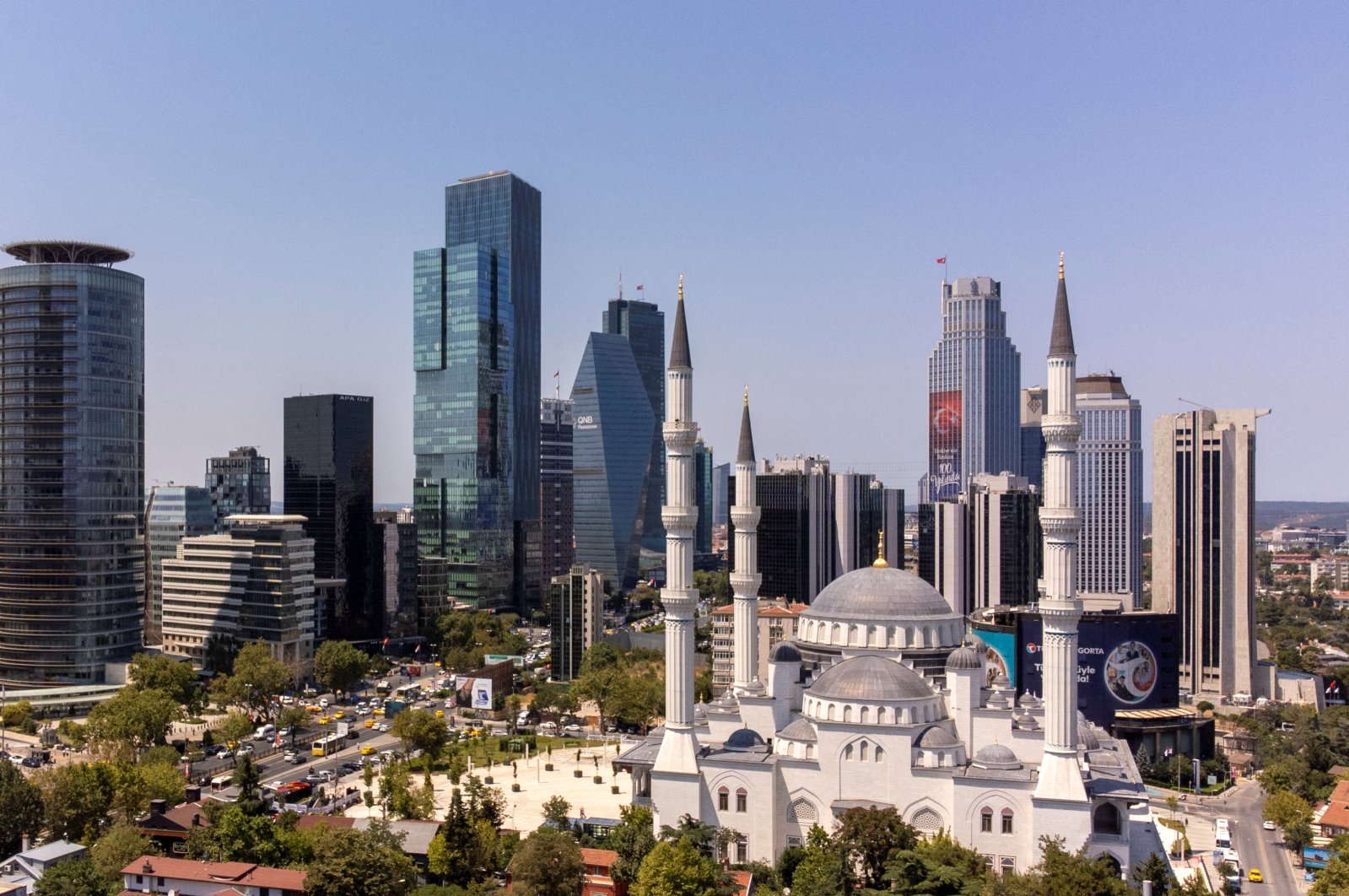
Türkiye's strategic location and growing economy will continue to bolster its appeal to global investors, according to a senior executive at the international consultancy firm Kearney.
Its strategic advantages and proximity to Europe have already helped Türkiye attract significant foreign direct investment from nations like India, Russia, the Gulf Cooperation Council (GCC) and China, said Mauricio Zuazua, the region chair for Middle East and Africa at Kearney.
Zuazua pointed out that Türkiye's landscape is highly attractive, citing its geographic position, extensive infrastructure investments, strong trade ties with the European Union, and large, dynamic, and well-educated workforce.
He said they encouraged global businesses to seriously consider Türkiye as an investment opportunity, noting that Kearney's own reports highlight the country's increasing significance.
Zuazua referenced Istanbul's rise to rank 25th out of 156 cities in the 2023 Global Cities Index, which measures how well a city attracts, retains, and generates global capital, talent, and ideas.
"Cities that climbed in the rankings demonstrated their economic resilience despite global patterns of low growth and high interest rates," he told Anadolu Agency (AA).
Kearney's latest Foreign Direct Investment Confidence Index also shows that emerging markets, including Türkiye, are strengthening their presence in global FDI rankings.
Banking, energy, transportation
Zuazua underlined Türkiye's solid market fundamentals and high growth potential, highlighting sectors such as banking and financial services, energy, transportation, and logistics.
He also noted that the rapidly growing energy sector is of particular interest due to its critical role in connecting the Middle East and Europe and in shaping Türkiye's sustainable future.
"The banking and financial services, energy, and public services, as well as the transportation and logistics sectors, have been strong drivers of investment in Türkiye. The rapidly growing energy sector is particularly noteworthy, as it not only plays a key role between the Middle East and Europe but also holds the key to Türkiye's sustainable future," said Zuazua.
In addition to these, Zuazua identified fintech, gaming, and digital industries as highly appealing to international investors.
He pointed to the success of Turkish tech ventures, such as the marketing software company Insider, which has seen 3.7-fold growth in the Middle East and Africa, demonstrating major potential.
Zuazua also touched on the economic opportunities created by trade agreements such as the Comprehensive Economic Partnership Agreement between Türkiye and the United Arab Emirates (UAE).
He remarked that localization trends in the GCC could offer further prospects for Turkish businesses. At the same time, Türkiye's strengths provide opportunities for GCC investment groups and sovereign wealth funds as they expand into Europe.
"The localization trend in the GCC presents opportunities for Turkish businesses, while Türkiye's strengths offer further prospects for GCC groups and sovereign wealth funds as they expand toward Europe," Zuazua said.
Burgeoning tech ecosystem
Regarding technological advancements, Zuazua pointed to successful Turkish startups like the fintech company Papara and the mobile gaming firm Peak Games, acquired by Zynga in 2020, as examples of the nation's burgeoning tech ecosystem.
"The success of Insider, along with examples like Papara – a payment company that recently announced a collaboration with a U.S. fintech allowing its users to invest in U.S. stocks – and Peak Games, acquired by Zynga in 2020, illustrates what Turkish startups can achieve," he noted.
"Türkiye is actively positioning itself as a global hub for technology startups, and initiatives like the TechVisa program are set to attract investment and help the country export its technology and solutions to surrounding markets."
Zuazua highlighted two key drivers shaping Türkiye's short- and medium-term economic outlook: its economic and trade relations with nearby countries and the European Green Deal.
He explained that Türkiye's proximity to Europe and its role in global value chains are drawing investment from emerging markets like India, Russia, the GCC, and China, in addition to its traditional investors in the U.S. and the EU.
As for the European Green Deal, Zuazua noted that environmental policies are increasingly influencing trade and industrial strategies. With nearly half of Türkiye's exports destined for the EU, carbon reduction initiatives will help the country maintain its market share while boosting its ability to attract FDI and participate in global value chains.
"In addition to long-standing investments from the U.S. and the EU, Türkiye is attracting international direct investment from India, Russia, GCC countries, and China due to its strategic advantages in global value chains and proximity to Europe. This trend is expected to continue, supported by Türkiye's unique geographic position and growing economy," said Zuazua.
"Within the context of the European Green Deal, climate policy is increasingly influencing trade and industrial policies. The EU represents over 40% of Türkiye's export markets, and decarbonization will help safeguard these markets while enhancing Türkiye's ability to attract FDI and integrate into global value chains."
Digitalization, sustainability
Zuazua identified digitalization and sustainability as two critical factors, emphasizing that the ability to produce innovative technologies will determine which economies lead in the coming decades.
The push toward a "Digital Türkiye" and the newly introduced "Digital Nomad Visa" will help attract talent, while ongoing collaboration with the EU will grant access to crucial funding and development projects, he noted.
On sustainability, Zuazua pointed out that transitioning to renewable energy will be vital for Türkiye to achieve its climate goals. He also stressed that the country's FDI strategy should focus on attracting sustainable investments to strengthen its position in international value chains.
